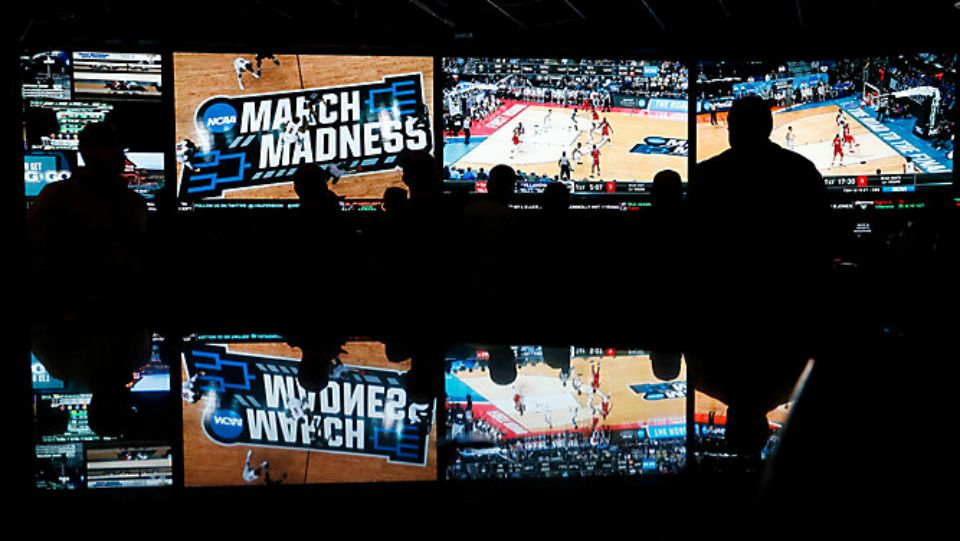RALEIGH, N.C. (AP) — Senate legislation to authorize and regulate sports gambling in North Carolina reemerged in the House on Thursday, as a committee voted to advance the measure with support that doesn’t cut neatly along party lines.
What You Need To Know
- Legislation attempts to take betting that bill supporters say already occurs within N.C.’s borders through offshore online websites or local bookies and control them through state licensing, regulation and taxation
- Under the legislation, the state would collect 8% of an operator’s adjusted gross revenues
- The measure, which the Senate already approved in August with bipartisan support, must still go through three other House committees before it could reach the House floor
The legislation attempts to take betting that bill supporters say already occur within North Carolina’s borders through offshore online websites or local bookies and control them through state licensing, regulation and taxation.
“This is something that we can’t ignore. It’s already here,” said Rep. Jon Hardister, a Guilford County Republican who helped shepherd the Senate measure through the House Commerce Committee in a 12-4 vote. “We need to establish the framework, we need to derive the revenue.”
The measure, which the Senate already approved in August with bipartisan support, must still go through three other House committees before it could reach the House floor.
“It’s got a long way to go,” said Rep. Jason Saine, a Lincoln County Republican and another bill manager, adding that there was no strategy to rush the measure through in the waning days of this year’s legislative session. If it stalls, the bill would still be eligible for consideration when the legislature reconvenes next year.
The legislation would direct the North Carolina Education Lottery commission to issue between 10 and 12 interactive sports wagering operator licenses, along with supplier licenses for these operators. College, professional and some amateur sports could be wagered on. Licensees could set up online apps, as well as an in-person betting location within or near a professional sports arena or where a pro golf event is held.
The state would collect 8% of an operator’s adjusted gross revenues. Half of the tax proceeds would go to a special fund to attract sporting events and attractions to the state. A legislative analysis of a previous version of the bill estimated the combined annual revenue collected could reach $24 million. Bill supporters have said the 8% tax could be higher.
At least 20 states — including Tennessee and Virginia — and the District of Columbia offer sports betting, according to the National Conference of State Legislatures. Interest took off after a U.S. Supreme Court ruling in 2018. The Eastern Band of Cherokee Indians opened on-site betting operations this year at its two far western north Carolina casinos thanks to 2019 legislation.
A collection of Christian conservatives and at least one progressive Democrat opposed the measure Thursday, saying it would create more gambling addicts, disproportionately harming the poor, and lead to more social ills.
“However you characterize this, it is a wild expansion of gambling in North Carolina,” said Rep. Deb Butler, a New Hanover County Democrat who also downplayed the prevalence of sports gambling in the state. “I think that it is clear to me that it is going to affect those who can arguably least afford it the most.”
Ches McDowell, a lobbyist representing Major League Baseball, the NBA, PGA Tour and the Charlotte Hornets, pointed out that the bill would put aside more money to address problem gambling. Regulating gambling also will help preserve the integrity of sports outcomes that could be questioned when big offshore bets raise questions, he said.
McDowell warned that North Carolina is falling behind other states in competing for new franchises and events because it lacks authorized in-state betting that can benefit leagues. “They have a better market for sports because sports betting is another line of revenue,” he said.
GOP Rep. Frank Iler of Brunswick County, a committee member, said he was willing to let the measure advance but wasn’t committed to supporting it in a floor vote.
“When I go back home I’m going to start polling people and see where the churches (are) and the older folks if they’re particiapting or they think this is a good idea or not, and see what comes out the other side,” Iler said.



